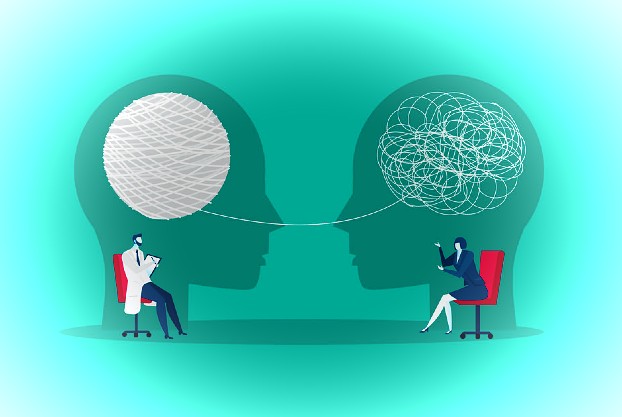Depression, a prevalent mental health concern affecting millions in India, casts a shadow on individuals' lives, hindering their ability to experience joy and fulfillment. In the face of this growing mental health challenge, counseling for depression emerges as a beacon of hope and healing. This comprehensive article delves into the importance of seeking counseling in India. We will explore the transformative impact of therapy, the availability of the best therapy for depression, and the renewed hope it can offer to those in need.
Depression is a complex mental health condition characterized by persistent feelings of sadness, hopelessness, and a loss of interest in activities that were once enjoyable. It can impact every aspect of a person's life, affecting their relationships, work, and overall well-being. In India, depression is a significant concern, with a large number of individuals experiencing its debilitating effects.
Depression counselling holds immense importance in India for several reasons:
- Professional Support: Counseling provides individuals with professional support from trained therapists who specialize in treating depression. Therapists offer a safe space for clients to explore their emotions, thoughts, and experiences.
- Emotional Release: Counseling allows individuals to express their feelings and emotions without judgment, facilitating emotional release and relief.
- Identifying Underlying Causes: Skilled therapists can help individuals identify the underlying causes of their depression, be it past traumas, life transitions, or other triggers.
- Personalized Treatment: Counseling offers personalized treatment plans tailored to the unique needs of each individual, promoting effective coping strategies and emotional healing.
- Breaking the Stigma: Seeking counseling helps break the stigma surrounding mental health issues, encouraging open conversations about emotional well-being.
Therapy for depression holds a transformative impact on individuals' lives, empowering them to navigate the challenges of depression and foster emotional well-being. Through therapy, individuals develop valuable coping skills to manage their depression effectively, enabling them to confront difficult emotions and situations with resilience. Moreover, therapy fosters self-awareness, empowering individuals to recognize negative thought patterns and replace them with healthier and more constructive beliefs. As individuals gain insight into their emotions and behaviors, they can make positive changes in their lives, leading to a renewed sense of self-awareness and personal growth.
Furthermore, therapy plays a crucial role in strengthening relationships. With improved communication and interpersonal skills, individuals can develop stronger connections with loved ones and foster healthier, more fulfilling relationships. Addressing any underlying relationship issues can be instrumental in alleviating depression and building a support system that aids in the healing process.Through therapeutic interventions, individuals develop coping strategies and emotional tools to cope with setbacks and challenges.
Overall, the transformative impact of therapy for depression extends far beyond symptom relief. It provides individuals with a pathway to self-discovery, personal growth, and emotional healing. Therapy serves as a guiding light, illuminating the path towards emotional restoration and empowering individuals to embrace their innate potential for positive change.
India offers various therapeutic approaches for treating depression. Some of the best therapies for depression include:
Cognitive-Behavioral Therapy (CBT): CBT helps individuals challenge negative thought patterns and replace them with more positive and constructive beliefs.
Mindfulness-Based Cognitive Therapy (MBCT): MBCT combines CBT with mindfulness techniques to help individuals manage depressive symptoms and prevent relapse.
Interpersonal Therapy (IPT): IPT focuses on improving communication and resolving interpersonal issues that contribute to depression.
Psychodynamic Therapy: Psychodynamic therapy explores unconscious conflicts and past experiences to understand and address depression.
Art Therapy: Art therapy encourages creative expression to help individuals process emotions and gain insight into their depression.
Group Therapy: Group therapy provides a supportive environment where individuals can share experiences, learn from one another, and build a sense of community.
Counseling for depression plays a vital role in India's mental health landscape, offering hope, healing, and renewed well-being to those grappling with depression. Through professional support, emotional release, and personalized treatment plans, counseling empowers individuals to confront their depression and embrace positive change. The transformative impact of therapy for depression extends beyond symptom relief, fostering emotional resilience, improving self-awareness, and strengthening relationships. With various therapeutic approaches available, individuals can find the best quality therapy for depression that resonates with their unique needs and experiences. In seeking depression counseling, individuals embark on a journey of self-discovery, growth, and ultimately, the restoration of their emotional well-being.

